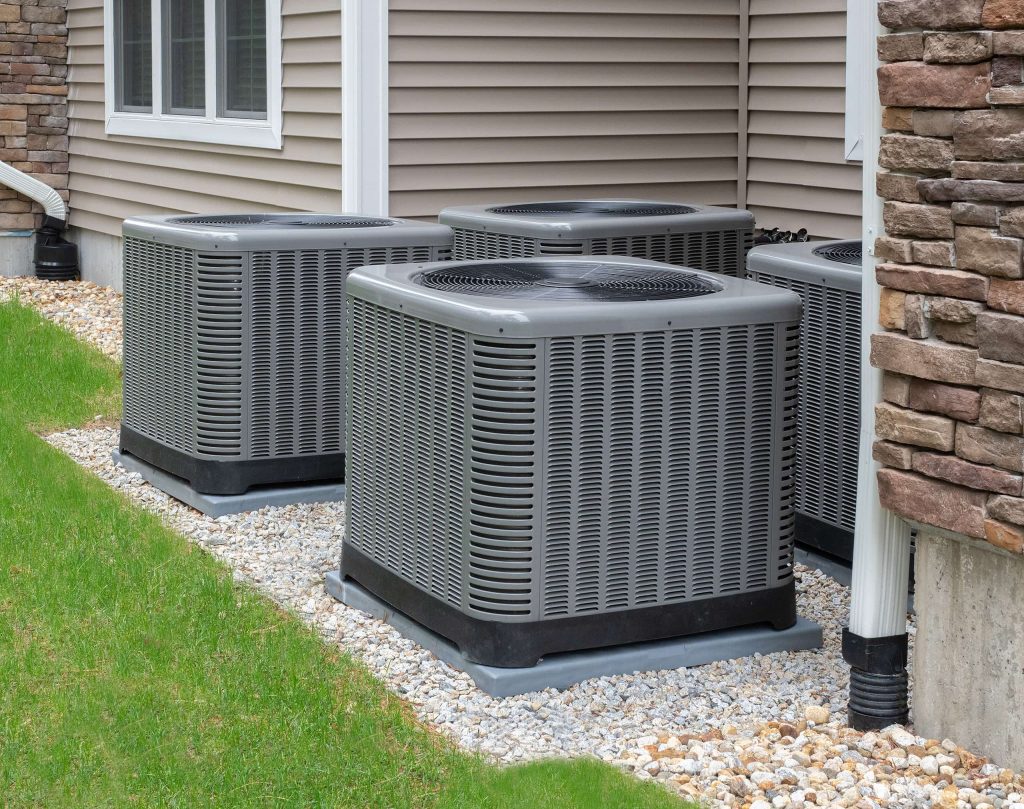Why Is My New AC So Loud Inside My House?
You’ve just installed a brand new air conditioning unit in your home, but instead of enjoying the cool air in peace and quiet, you’re now dealing with a loud and disruptive noise. This can be frustrating and concerning, especially if you’ve invested a significant amount of money into your new AC system.
In this blog, we’ll explore the reasons why your new AC may be making loud noises and what you can do to fix it.
Why is My New AC So Loud?
There are several reasons why your new AC may be making loud noises. Some of the most common causes include:
Improper Installation
One of the most common reasons for a loud AC is improper installation. If your AC unit is not installed correctly, it can cause vibrations and rattling noises. This can be due to loose parts, incorrect placement, or a lack of insulation.
To avoid this issue, it’s important to hire a professional and experienced HVAC technician to install your new AC unit. They will ensure that all components are properly secured and insulated, reducing the chances of loud noises.
Dirty or Clogged Air Filters
Another common cause of loud AC noises is dirty or clogged air filters. When air filters become dirty or clogged, they restrict airflow and cause the AC unit to work harder, resulting in loud noises. This can also lead to reduced efficiency and higher energy bills.
To prevent this issue, it’s important to regularly clean or replace your air filters. This will not only reduce noise levels but also improve the overall performance of your AC unit.
Faulty Compressor
The compressor is the heart of your AC unit, responsible for circulating refrigerant and cooling your home. If the compressor is faulty or damaged, it can cause loud noises, such as humming or buzzing sounds.
If you suspect that your compressor is the cause of the noise, it’s important to have it inspected and repaired by a professional HVAC technician. Ignoring a faulty compressor can lead to further damage and potentially costly repairs.
Loose or Worn Parts
Over time, the components of your AC unit can become loose or worn, resulting in loud noises. This can be due to normal wear and tear or improper maintenance. Loose or worn parts can cause rattling, banging, or squealing noises.
To prevent this issue, it’s important to schedule regular maintenance for your AC unit. This will allow a professional technician to inspect and tighten any loose parts, as well as replace any worn components.
Refrigerant Leaks
Refrigerant is a crucial component of your AC unit, responsible for cooling the air that is circulated throughout your home. If there is a leak in the refrigerant line, it can cause a hissing or bubbling noise.
In addition to the noise, a refrigerant leak can also lead to reduced cooling efficiency and higher energy bills. If you suspect a refrigerant leak, it’s important to have it repaired by a professional HVAC technician as soon as possible.
How Can I Reduce AC Noise?
If your new AC unit is making loud noises, there are a few steps you can take to reduce the noise levels.
Regular Maintenance
As mentioned earlier, regular maintenance is crucial for keeping your AC unit running smoothly and quietly. During a maintenance visit, a professional technician will inspect and clean all components, ensuring that everything is working properly and efficiently.
Insulate the Unit
Insulating your AC unit can help reduce noise levels, especially if the noise is caused by vibrations. You can use sound-absorbing materials, such as rubber or foam, to insulate the unit and reduce noise.
Replace Worn Parts
If your AC unit is making loud noises due to worn or damaged parts, it’s important to have them replaced as soon as possible. Ignoring worn parts can lead to further damage and potentially costly repairs.
Upgrade to a Quieter Unit
If your new AC unit is still making loud noises even after taking the above steps, it may be time to consider upgrading to a quieter unit. Newer AC units are designed to be more energy-efficient and quieter, making them a worthwhile investment in the long run.
Conclusion
In conclusion, there are several reasons why your new AC unit may be making loud noises. These can include improper installation, dirty air filters, faulty compressors, loose or worn parts, and refrigerant leaks. To reduce noise levels, it’s important to schedule regular maintenance, insulate the unit, replace worn parts, and consider upgrading to a quieter unit if necessary.
By taking these steps, you can enjoy the cool air from your new AC unit without the added frustration of loud noises. If you’re still experiencing loud noises after trying these solutions, it’s best to consult a professional HVAC technician for further assistance.

